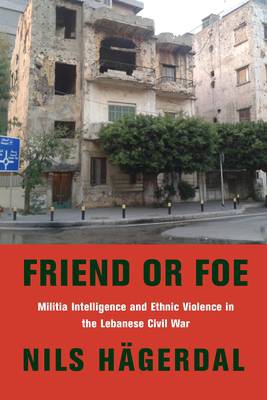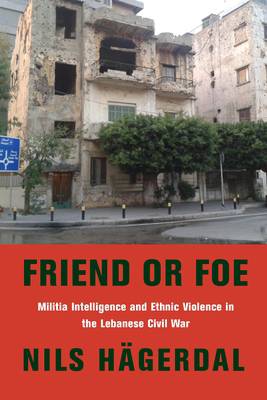
- Retrait gratuit dans votre magasin Club
- 7.000.000 titres dans notre catalogue
- Payer en toute sécurité
- Toujours un magasin près de chez vous
- Retrait gratuit dans votre magasin Club
- 7.000.0000 titres dans notre catalogue
- Payer en toute sécurité
- Toujours un magasin près de chez vous
59,45 €
+ 118 points
Description
When civil conflicts break out in plural societies, violence often occurs along group divides--running the risk of spiraling into ethnic cleansing. Yet for militants who do not seek ethnic separation as a political goal, indiscriminate attacks are detrimental to their cause. Under what circumstances are such combatants more or less likely to commit ethnic violence?
Nils Hägerdal examines the Lebanese civil war to offer a new theory that highlights the interplay of ethnicity and intelligence gathering. He shows that when militias can obtain reliable intelligence--particularly in demographically intermixed areas where information can cross ethnic boundaries--they are likely to refrain from indiscriminate tactics. Access to local intelligence helps armed groups distinguish between neutral and hostile non-coethnics to target individual opponents while leaving civilians in peace. Conversely, when militias struggle to access local information, they often fall back on ethnicity as a proxy for political allegiance, with bloody consequences. As intelligence capabilities shape the course of sectarian strife, the role of ethnicity can vary even within a particular conflict. Hägerdal conducted sixteen months of fieldwork in Lebanon, interviewing former militia fighters and commanders and collecting novel statistical evidence. He combines documentation by government agencies, NGOs, local news media, and the United Nations with firsthand narratives by participants to provide an unparalleled account of the processes that generate violence or coexistence when a diverse society descends into armed conflict. Theoretically innovative and descriptively rich, Friend or Foe sheds new light on the logic and dynamics of ethnic violence in civil wars.Spécifications
Parties prenantes
- Auteur(s) :
- Editeur:
Contenu
- Nombre de pages :
- 240
- Langue:
- Anglais
- Collection :
Caractéristiques
- EAN:
- 9780231200653
- Date de parution :
- 06-07-21
- Format:
- Livre broché
- Format numérique:
- Trade paperback (VS)
- Dimensions :
- 152 mm x 226 mm
- Poids :
- 340 g

Les avis
Nous publions uniquement les avis qui respectent les conditions requises. Consultez nos conditions pour les avis.






